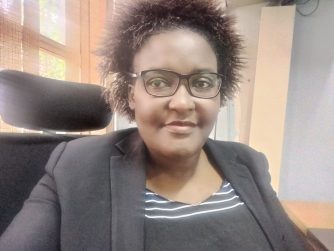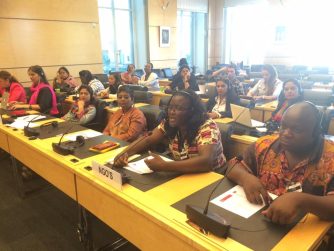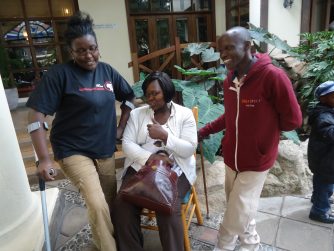It was a phenomenal Week!
Roughly 6,000 global leaders from all walks of life convened onsite and an additional 200,000 delegates joined the Women Deliver conference virtually in Kigali, Rwanda last week. The conference that was themed spaces, solidarity and solutions sought to shape and co-create inclusive spaces to advance sustainable solutions on gender equality. Just a week ahead of the Women Deliver Conference, Solidarity for African Women’s Rights Coalition (SOAWR) spearheaded the commemoration of the 20th anniversary of the Maputo protocol in collaboration with stakeholders in Nairobi, Kenya. Coincidentally, all these iconic events happened in Africa during the disability pride month and the recent Mandela Day celebrations, as such paving way for thoughtful reflections on the intersectional feminist leadership!
As I pen down my reflections of the momentous events in Africa over the past few weeks, I take a trip down memory lane on the Generation Equality Forums held in Mexico and Paris about two years ago. The forums happened at an epic moment and in the middle of the COVID-19 Pandemic which transformed the lives of everyone including the emergence and surge of gender based violence leading to a shadow pandemic that threatened lives of many women and children at the time.
The remarkable and timely conversations during the generation equality forums at the heart of the pandemic could not come at a better time! There was so much to celebrate, including amplifying voices of women in their diversities to challenge gender inequalities as well as developing and resourcing the six action coalitions. These coalitions would then catalyze their work five years post Generation Equality Forums with an investment of USD 40 Billion from development partners. The focus of the action coalitions included gender-based violence, economic justice, bodily autonomy and sexual and reproductive health and rights (SRHR), climate justice, technology and innovation for gender equality, and feminist movements and leadership.
Regrettable the Generation Equality Forums directed inequality to women with disabilities whose participation was curtailed due to lack of accessibility. As champions of Equity, together with my friend Dr. Shubha Nagesh we decided to express our frustrations through an op- Ed which was published by Women Enabled International rallying Gender Equity Advocates to center Inclusivity in their work. We made four key recommendations, namely; including disability perspectives in planning events, acknowledging that accessibility is a human right and not a checklist for compliance, engaging the expertise of women with disabilities and their advocates in design and implementation of events and holding institutions and organization accountable for leaving no one behind.
Two years, later I celebrate the development of Feminist Accessibility Protocol which was quite instrumental in guiding the planning and Implementation the Women Deliver Conference 2023 that was held last week in Kigali. The conference planners made deliberate efforts to work with Women with disabilities in ensuring that accessibility needs of women with disabilities were met during the conference.
It is gratifying that participation in the conference did not stop at giving women with disabilities access to the conference venue but continued in curating amazing panel discussions that saw women with disabilities in their diversities speaking on pertinent issues that affect them in the context of gender equity. A dedicated Accessibility Portal on the Women Deliver conference website and having organizations of Women with Disabilities in the conference advisory group made the conference more welcoming to women with disabilities and allowed more meaningful engagement. Indeed we can all attest that being intentional in including everyone is the most impactful way of breathing life to the Sustainable Development Goals Mantra of Leaving no one behind.
The quest for alleviating inequalities through the struggle to build more inclusive, fairer and healthier communities is one that we must brave with utmost honesty devoid of double speak. We must comprehensively define the elements of inequalities that continue to fragment our society and have the courage to boldly address them progressively with tangible and measurable outcomes.
While it is true that the journey to an equitable world is thorny and disruptive, it is also true that an equitable world is possible if we focus on the goal and pay the price! We are not there yet, but every little progress that we make constitute our footprints in this process.
It can only get better!
Published by Mildred Omino





